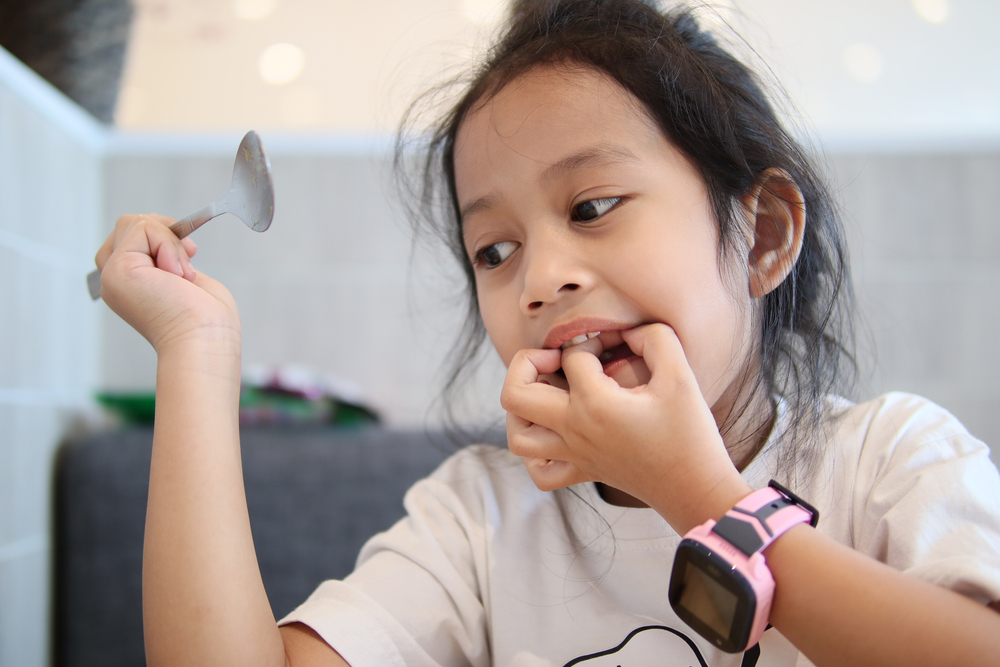As a parent, you care about your child’s health and happiness above all else. It is, of course, also your responsibility to ensure they are cared for in all ways. Oral health is one area of your kid’s health that matters a lot. Tooth decay is a common problem in children. While tooth decay is an issue that can be fixed at the dentist’s, it’s better if the decay never occurs in the first place.
What is the key to stopping tooth decay in your children, then? It’s pretty simple. Diet is what matters most. That’s because responsible parents already teach their kids to brush their teeth thoroughly and to floss. Diet, however, is where things get a little trickier. Every parent knows how tough it can be to get children to consume a really good, balanced diet. Here are three essential rules that will help.
Limit Sweets
Tooth decay occurs when harmful bacteria attack enamel, the protecting covering that keeps your child’s teeth healthy. These nasty bacteria live off of sugar, meaning that foods with lots of sugar are enemy number one of your child’s teeth. Limiting how many sugary foods your kids eat is, outside of making sure they brush their teeth, the biggest key to protecting their teeth.
Of course, you probably already see the big problem… Kids absolutely love sweets! Candy, ice cream, cake, and the like are often the foods a child loves above all else. Cutting sweets out of your child’s diet completely is draconian and unrealistic.
What is much more reasonable is limiting their consumption of sweet foods. Make some rules and stick with them. Perhaps they only get a small number of sweets after dinner every other day. Reserving certain treats such as cake for special occasions only (like a birthday) is a good idea.
Emphasize Fruits and Vegetables
Vegetables and fruits are essential for a person to be healthy no matter their age. Fruits and veggies are high in the vitamins and minerals that are so vital for a child’s growing body to develop as it should.
But aside from these general reasons to encourage your children to consume vegetables and fruits, there are also reasons specific to dental health. Fruits and vegetables increase the flow of saliva, which helps wash down the food particles that otherwise contribute to the growth of the bacteria that cause cavities. The fibrous texture of many fruits and veggies also helps keep the teeth relatively clean.
Getting a child to eat enough fruits and vegetables is, of course, much easier said than done. Veggies are particularly likely to be a problem. While fruit is naturally sweet, and so appealing to the palate of a child, vegetables are rarely appreciated by children.
However, some strategies can help. One is to ‘sneak’ vegetables into more palatable dishes. A recipe that contains other ingredients will often mask the taste of vegetables, for instance lasagna or bolognese. Even adults may appreciate this ‘trick’ for consuming more veggies.
Another is to allow children to eat some dessert or other tasty, but not particularly nutritious, food, but only after they have finished eating a solid serving of vegetables. Your kids may not be the biggest fans of this way of doing things, but this sort of carrot-and-stick approach can be quite effective.
Limit Snacking
There are a few issues with snacking when it comes to a child’s health. First, snacks are typically not particularly nutritious, so eating them is all-around bad for your kid. Snacks can also easily add up. At meals, it’s easier for parents to track what is consumed. With snacking, eating can get out of control.
In oral health terms specifically, snacking has its own set of problems. Basically, the longer the time between one session of eating and the next, the better. Lots of snacking means the mouth does not have the opportunity to wash away food particles. This encourages the development of plaque and, ultimately, tooth decay.
Of course, teeth brushing can solve this issue. However, while it might be reasonable for you to get your children to brush their teeth twice a day and after big meals, brushing after each snack consumed is just not going to happen. So, it’s better to usually just skip the snacking in the first place.
In many ways, children have fewer health concerns than adults. Children are right at the start of their lives, well before age begins to weaken and break the body down. However, some health concerns do often affect children. Tooth decay is one of the top examples. If you aren’t careful, your child is likely to suffer from tooth decay. You need to take steps to make sure that doesn’t happen.



